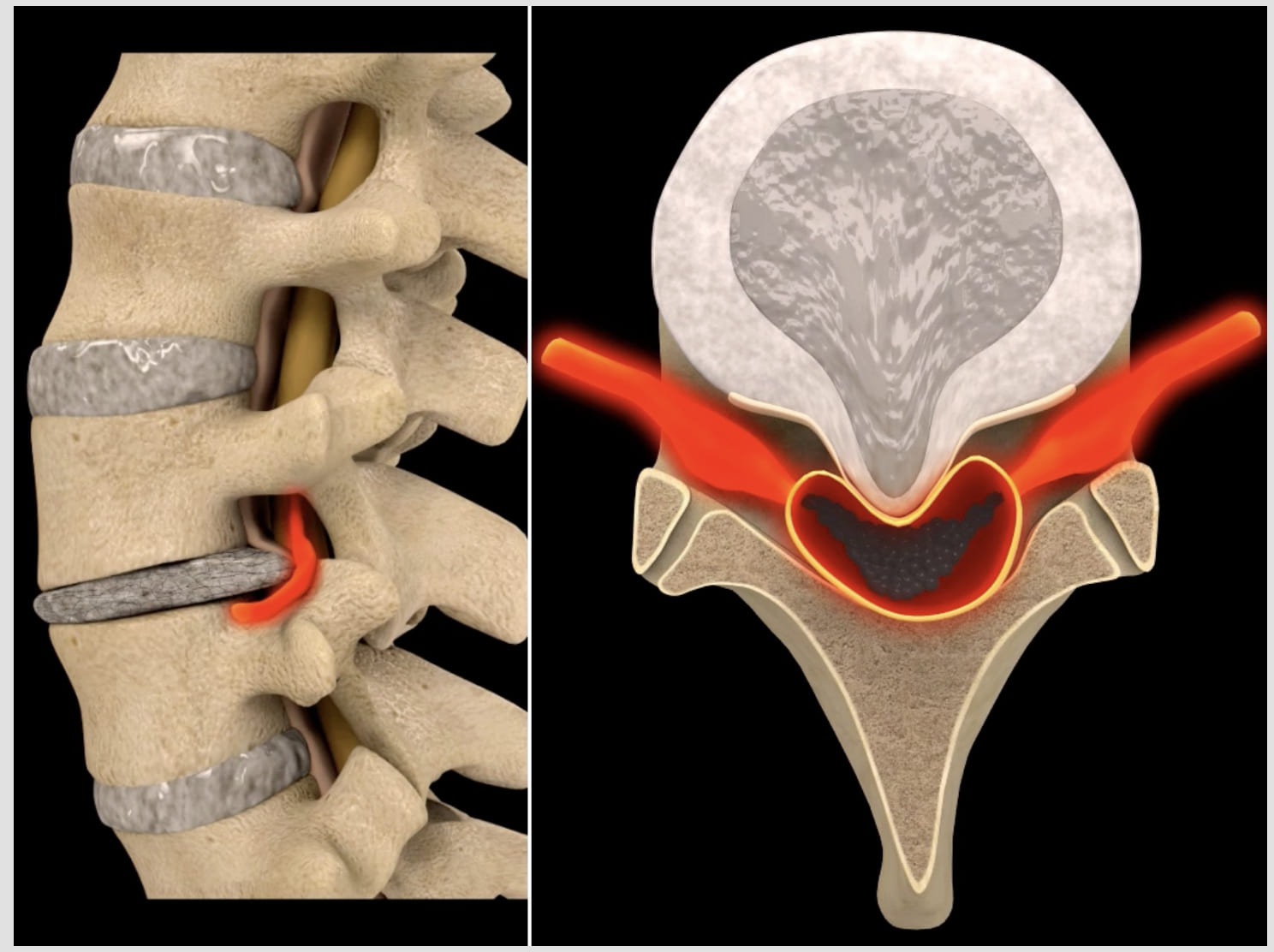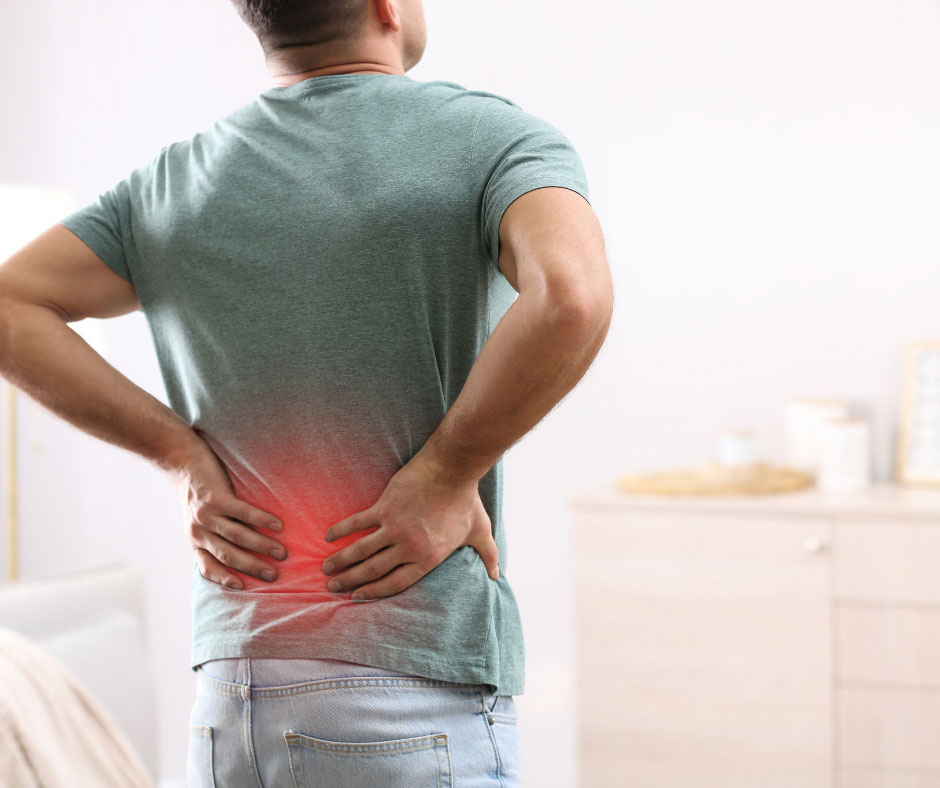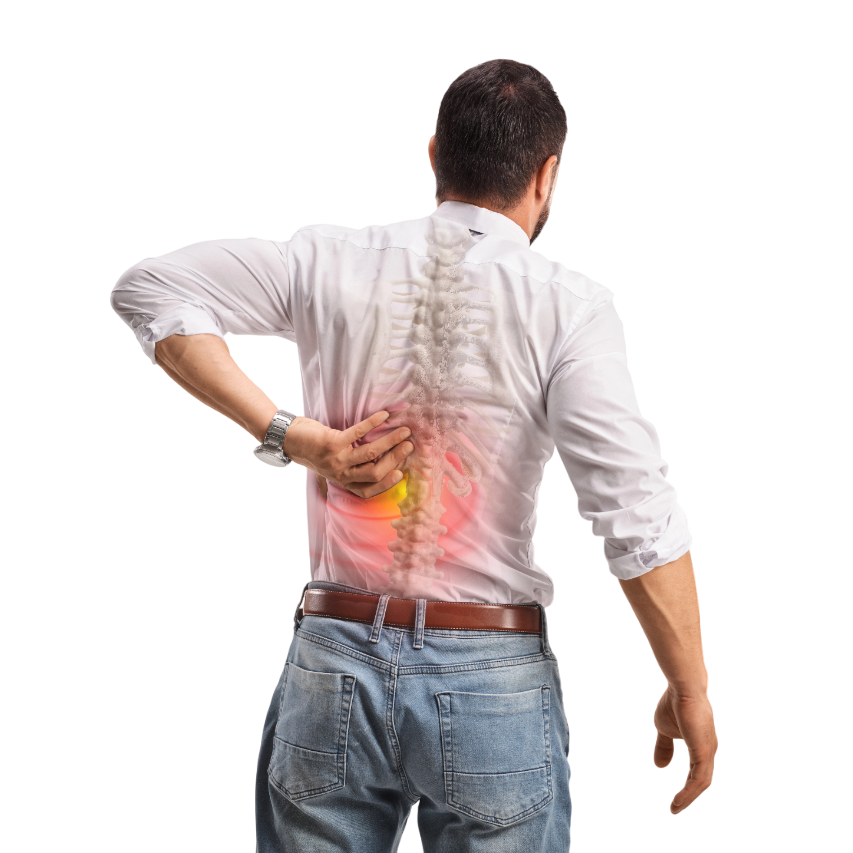Lower back pain caused by a herniated disc is one of the most common spinal issues affecting people worldwide. A herniated disc, particularly in the lumbar spine, can lead to discomfort, pain, and limited mobility. In this article, we’ll discuss what you need to know about lower back pain from a herniated disc, the symptoms of lumbar disc herniation, the best exercises for herniated disc lumbar spine, and the treatment options available.
What is a Herniated Disc?
A herniated disc occurs when one of the discs in your spine slips out of place or ruptures. The discs in your spine serve as shock absorbers between the vertebrae, and when one of these discs herniates, it can press on surrounding nerves, leading to pain, numbness, or weakness in the affected area. Herniated discs are most common in the lower back, causing significant discomfort and pain. Understanding how to manage lower back pain from a herniated disc is essential for maintaining daily activities.
Causes of a Herniated Disc in the Lower Back
Several factors contribute to the development of a herniated disc, including:
- Aging: As we age, the discs in the spine lose hydration and elasticity, making them more susceptible to injury.
- Repetitive Motion or Overuse: Activities involving heavy lifting or constant twisting can cause strain on the spine and contribute to disc herniation.
- Trauma or Injury: Accidents or injuries, such as falls or car crashes, can result in a herniated disc.
- Poor Posture: Bad posture, especially during long hours of sitting or standing, can put added stress on the spine, leading to disc problems.
- Genetics: Some people are genetically predisposed to disc degeneration and herniation.
Symptoms of a Herniated Disc in the Lower Back
The symptoms of a herniated disc can vary depending on its severity. Some of the most common symptoms include:
- Lower Back Pain: Persistent or intermittent pain in the lower back is the most common symptom, often worsened by movement or prolonged activity.
- Radiating Pain: Pain that extends into the buttocks, legs, or feet, often referred to as sciatica.
- Numbness or Tingling: A herniated disc can affect nerve function, leading to sensations of numbness or tingling in the legs or feet.
- Weakness: Muscle weakness in the leg or foot may occur due to nerve compression.
- Limited Mobility: Bending, lifting, or twisting may aggravate the pain and decrease your range of motion.
These symptoms are indicative of lumbar disc herniation, and if you experience any of them, it’s crucial to consult with a healthcare professional for a proper diagnosis.
How to Diagnose a Herniated Disc
If you experience symptoms of a herniated disc, a healthcare professional will perform a physical examination and may recommend imaging tests to confirm the diagnosis. The most common diagnostic tests include:
- MRI (Magnetic Resonance Imaging): The most effective imaging test for visualizing herniated discs and assessing their impact on surrounding tissues.
- X-rays: Though they can’t show soft tissues like discs, X-rays can help rule out other potential causes of back pain, such as fractures or arthritis.

Treatment Options for a Herniated Disc
Managing the symptoms of a herniated disc can often be achieved without surgery. The goal is to reduce pain, improve mobility, and promote healing through non-invasive treatments. Below are the common treatments for herniated discs, their benefits, and considerations.
1. Physical Therapy
Benefits: Physical therapy helps strengthen the muscles around the spine, improving posture and reducing pressure on the herniated disc. It can also restore flexibility, range of motion, and prevent future injuries.
Considerations: It requires regular commitment and may cause some discomfort as muscles strengthen. The full benefits may take time to develop.
2. Pain Medications
Benefits: Over-the-counter medications like ibuprofen or acetaminophen are effective for managing pain and inflammation, allowing for more comfortable daily activities.
Considerations: These medications only provide temporary relief and do not address the root cause. Long-term use may lead to side effects, such as gastrointestinal irritation or kidney issues.
3. Hot and Cold Therapy
Benefits: Applying ice or heat to the affected area can help reduce swelling and soothe sore muscles. Cold therapy is especially effective in the initial stages, while heat can improve blood flow and reduce stiffness.
Considerations: This method offers temporary relief and does not treat the underlying issue. Overuse or improper application can cause skin damage or worsen inflammation.
4. Steroid Injections
Benefits: If pain is severe, epidural steroid injections can help reduce inflammation around the affected nerve and provide significant pain relief for an extended period.
Considerations: Steroid injections are not a permanent solution and may have side effects, such as weakening of tissues with repeated use or a risk of infection.
5. Rest
Benefits: Adequate rest can promote healing by avoiding additional strain on the affected disc. It’s important to rest the body while also engaging in light movement when possible.
Considerations: Extended rest can lead to muscle weakness and stiffness, so it’s important to balance rest with appropriate movement and physical activity.
Non-Surgical Treatment for Herniated Disc Lumbar
If conservative treatments do not provide relief, non-surgical options like epidural steroid injections or chiropractic adjustments may be considered to alleviate the pain and reduce inflammation without the need for surgery.
Surgical Options
If conservative treatments fail to relieve symptoms, surgery may be necessary. Common surgical options include:
- Discectomy: Removing the damaged part of the disc to relieve pressure on the nerves.
- Laminectomy: Removing a small portion of the bone or disc to increase space in the spinal canal and relieve nerve pressure.
- Spinal Fusion: In cases of severe damage, two vertebrae may be fused together to provide stability to the spine.
Accelerate Healing with SoftWave Therapy
In addition to spinal decompression, we use SoftWave Therapy as part of our disc reset method. This next-generation technology promotes tissue repair without the use of drugs or needles.
SoftWave Tissue Regeneration Therapy enhances the effectiveness of spinal decompression by using focused sound waves to stimulate the body’s natural healing processes. This advanced, FDA-cleared technology accelerates recovery and supports tissue regeneration.
Prevention of a Herniated Disc
While it may not always be possible to prevent a herniated disc, there are steps you can take to reduce the risk:
- Practice Good Posture: Maintain proper posture when sitting, standing, and lifting. Avoid slouching or twisting your spine.
- Exercise Regularly: Strengthen your core and back muscles to better support your spine.
- Lift Correctly: When lifting, always bend your knees and keep your back straight.
- Maintain a Healthy Weight: Excess weight can put added stress on your spine, increasing the risk of a herniated disc.
- Quit Smoking: Smoking reduces blood flow to the spine, leading to disc degeneration and increased risk of injury.
Now Serving Patients in Jacksonville, FL and Jacksonville Beach, FL
SpineWell Centers is excited to announce that we are now serving patients in Jacksonville, FL and Jacksonville Beach, FL. If you are experiencing lower back pain or suspect you have a herniated disc, we offer a range of services to help relieve your discomfort and improve your quality of life. Our expert team provides personalized, non-surgical treatment options that aim to minimize pain, restore function, and enhance mobility.
At SpineWell Centers, we focus on conservative treatment methods to ensure that our patients receive the most effective, least invasive care possible. From physical therapy to advanced pain management options, we are committed to helping you achieve long-lasting relief.
If you are located in Jacksonville or Jacksonville Beach and are dealing with lower back pain from a herniated disc, don’t wait to seek treatment. Contact SpineWell Centers today to schedule your consultation and start your journey to recovery.
Testimonials
Our Locations
2 Offices In North FL To Serve You
Nearby Cities:
Nearby Places:
Nearby Cities:
Nearby Places:





